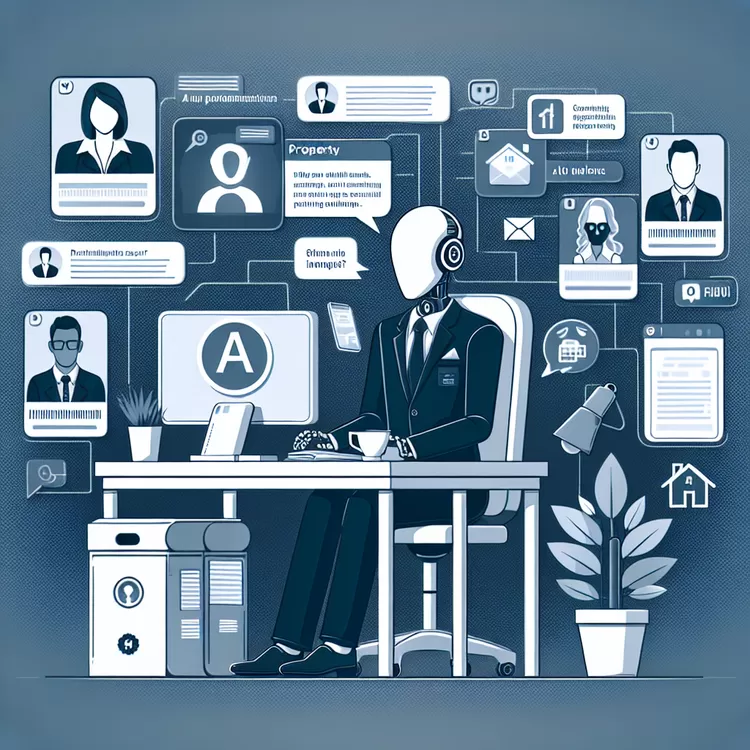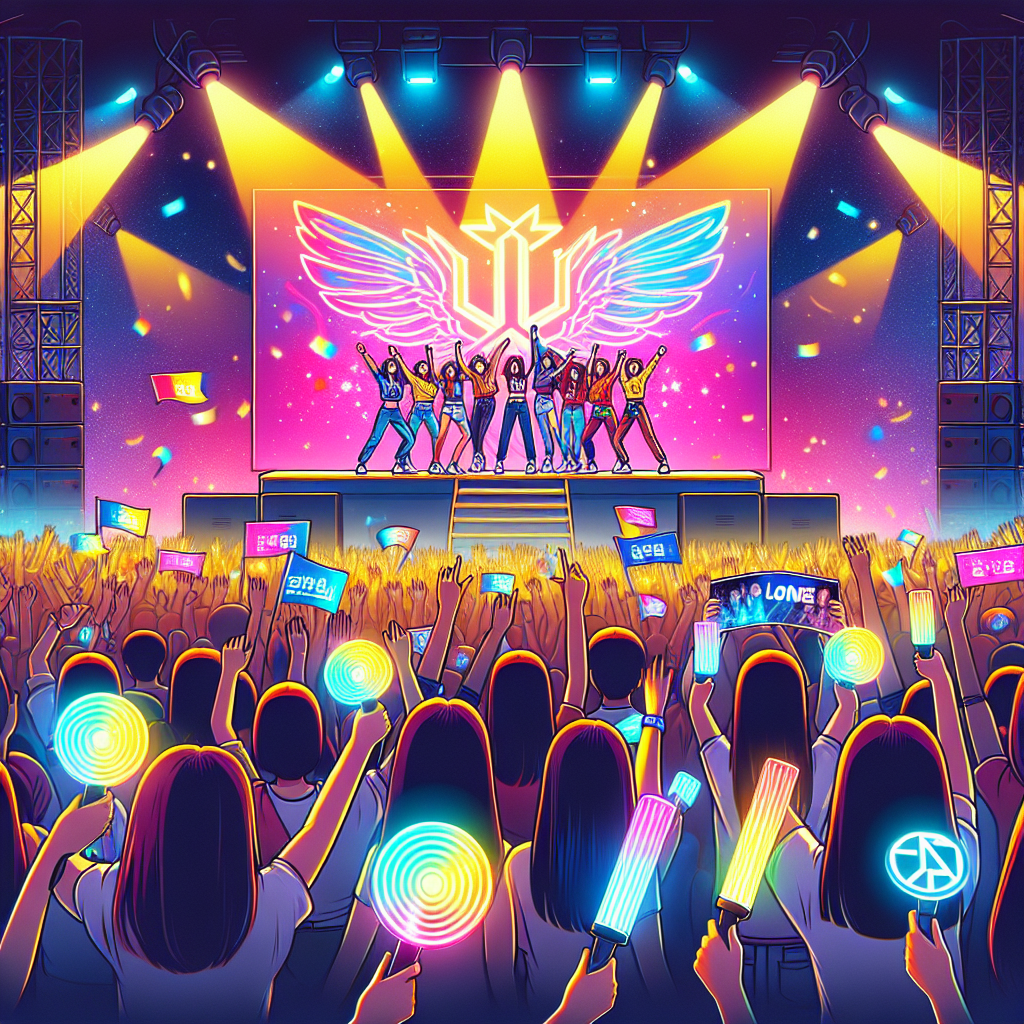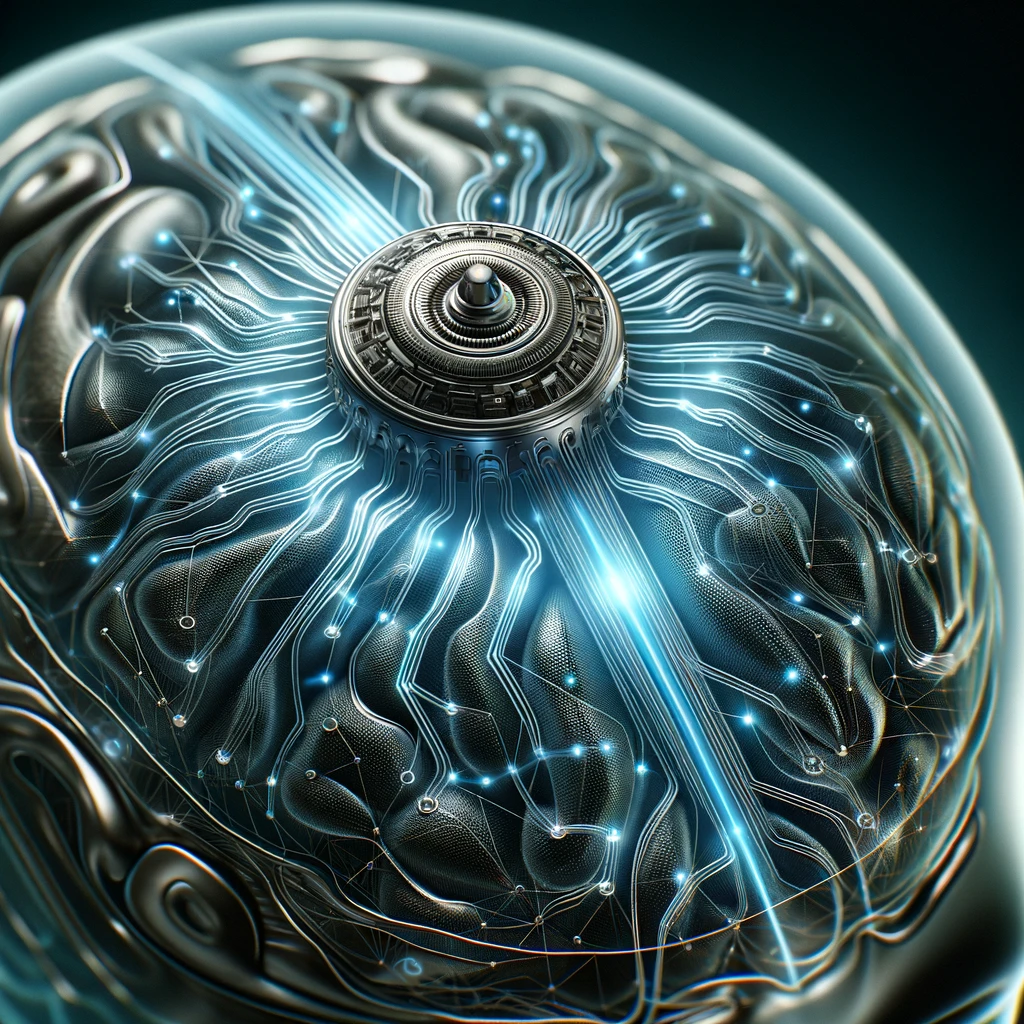A property expert named Rob Dix has used artificial intelligence (AI) software to create a digital version of himself. This digital clone, called a chatbot, can answer questions just like Rob would. To train the chatbot, Rob gave it his books, columns, and podcasts so it could respond in his own style. He made the clone to help him answer the many questions he gets from his followers. Rob is one of about 150 people who have made AI clones of themselves through a UK company called Coachvox AI.
Using AI clones is becoming more popular, and other companies like Synthesia and Delphi offer similar services. People can upload their past writings or recordings, like videos, podcasts, and articles, to train their clones. The clones can then take on some of their work, like talking to employees or giving advice to clients. Coachvox AI says their clones can think about new situations instead of just repeating old information. Synthesia goes even further by making a talking avatar that can appear on screen and speak in over 120 languages.
Creating AI clones has its advantages, like saving time for users and giving instant answers to clients. But there are also downsides to think about. Some experts worry that AI clones might not always give the right information, especially in complicated business situations. Others are concerned about machines not being aware enough and the dangers of relying on them to make decisions. Rob knows about these worries and tells users that they’re talking to technology, not a real person.
In conclusion, using AI clones is a way for people to use technology to be more productive and give helpful information to their audience. But it’s important to be careful and understand the limits of this technology.
Original news source: The people creating digital clones of themselves (BBC)
Listen:
Slow
Normal
Fast
Vocabulary:
| 1 | artificial intelligence (AI) | A type of technology that allows computers to think and learn like humans |
| 2 | digital clone | A copy of a person made using computer technology |
| 3 | chatbot | A computer program that can have conversations with people |
| 4 | respond | To answer or reply to something |
| 5 | style | The way someone does something or expresses themselves |
| 6 | followers | People who support and follow someone’s work or ideas |
| 7 | upload | To transfer or send information from one place to another, usually using a computer |
| 8 | recordings | Things that have been recorded, like videos or audio files |
| 9 | advice | Suggestions or recommendations given to someone about what they should do |
| 10 | situations | Different situations or circumstances that can happen |
| 11 | downsides | Disadvantages or negative aspects of something |
| 12 | complicated | Difficult and not easy to understand or solve |
| 13 | aware | Having knowledge or understanding of something |
| 14 | relying | To depend on or trust in something or someone |
| 15 | productive | Being able to produce or achieve a lot of work or results |
Group or Classroom Activities
Warm-up Activities:
– News Summary
Instructions: Divide the class into pairs or small groups. Give each group a few minutes to read the article. Then, ask each group to write a summary of the article in their own words. Afterward, have each group share their summary with the class and compare the different versions.
– Opinion Poll
Instructions: Have the class form pairs or small groups. Ask each group to discuss and share their opinions on the use of AI clones, based on the information in the article. Afterward, have each group create a poll with a few questions related to the topic and ask the class to answer the poll. Finally, discuss the results as a class.
– Vocabulary Pictionary
Instructions: Write down a list of vocabulary words from the article on separate pieces of paper and put them in a hat or container. Divide the class into two teams. Each team takes turns choosing a word from the hat and drawing it on the board without using any letters or numbers. The other team must guess the word. The team that guesses the most words correctly wins.
– Headline Creation
Instructions: In pairs or small groups, ask the students to create catchy and informative headlines for the article. Encourage them to be creative and use their own words. Afterward, have each group share their headline and explain why they chose it.
– Think-Pair-Share
Instructions: Pose a discussion question related to the article, such as “What are the potential benefits and drawbacks of using AI clones?” Give the students a few minutes to think individually about their response. Then, ask them to pair up with a partner and share their thoughts. Finally, have some pairs share their discussion points with the whole class.
Comprehension Questions:
1. What did property expert Rob Dix use artificial intelligence software to create?
2. How did Rob train his digital clone to answer questions?
3. What is the purpose of Rob’s digital clone?
4. Besides Coachvox AI, what are two other companies that offer similar services?
5. What types of past writings or recordings can people upload to train their clones?
6. What are some advantages of using AI clones?
7. What are some concerns that experts have about AI clones?
8. What advice does Rob give to users of AI clones?
Go to answers ⇩
Listen and Fill in the Gaps:
A property expert named Rob Dix has used artificial intelligence (AI) software to create a digital version of himself. This digital (1)______, called a (2)______, can answer (3)______ just like Rob would. To train the chatbot, Rob gave it his books, columns, and podcasts so it could (4)______ in his own style. He made the clone to help him answer the many questions he gets from his followers. Rob is one of about 150 people who have made AI clones of themselves through a UK company called Coachvox AI.
(5)______ AI clones is becoming more popular, and other companies like Synthesia and Delphi offer similar services. People can upload their past writings or recordings, like videos, podcasts, and (6)______, to train their clones. The clones can then take on some of their work, like talking to employees or giving (7)______ to clients. Coachvox AI says their clones can (8)______ about new situations instead of just repeating old information. Synthesia goes even further by making a talking avatar that can appear on (9)______ and speak in over 120 languages.
Creating AI clones has its (10)______, like saving time for (11)______ and giving instant answers to clients. But there are also downsides to think about. Some experts worry that AI clones might not always give the right information, especially in complicated (12)______ situations. Others are concerned about machines not being aware enough and the dangers of relying on them to make decisions. Rob knows about these (13)______ and (14)______ users that they’re talking to (15)______, not a real person.
In (16)______, using AI clones is a way for people to use technology to be more productive and give helpful information to their audience. But it’s important to be careful and understand the limits of this technology.
Go to answers ⇩
Discussion Questions:
Students can ask a partner these questions, or discuss them as a group.
1. What is an AI clone and how does it work?
2. How would you feel if you had an AI clone of yourself? Why?
3. Do you think AI clones are helpful or do they have more disadvantages? Why or why not?
4. What are some advantages of using AI clones?
5. Have you ever used any AI technology? If so, what was your experience like?
6. How do you think AI clones could be used in the business world?
7. Do you think AI clones will replace human workers in the future? Why or why not?
8. What are some potential dangers of relying on AI clones to make decisions?
9. Would you trust an AI clone to give you accurate information? Why or why not?
10. How do you think AI clones could be improved or made more reliable?
11. Do you think AI clones could have ethical implications? Why or why not?
12. Have you ever had a situation where you needed to ask someone for advice? How do you think an AI clone could help in that situation?
13. Do you think AI clones could have a negative impact on human interaction? Why or why not?
14. How do you think AI clones could be used in education?
15. Would you be interested in creating an AI clone of yourself? Why or why not?
Individual Activities
Vocabulary Meanings:
Match each word to its meaning.
Words:
1. artificial intelligence (AI)
2. digital clone
3. chatbot
4. respond
5. style
6. followers
7. upload
8. recordings
9. advice
10. situations
11. downsides
12. complicated
13. aware
14. relying
15. productive
Meanings:
(A) To answer or reply to something
(B) Different situations or circumstances that can happen
(C) Having knowledge or understanding of something
(D) Things that have been recorded, like videos or audio files
(E) The way someone does something or expresses themselves
(F) People who support and follow someone’s work or ideas
(G) A computer program that can have conversations with people
(H) A copy of a person made using computer technology
(I) Being able to produce or achieve a lot of work or results
(J) A type of technology that allows computers to think and learn like humans
(K) Suggestions or recommendations given to someone about what they should do
(L) Difficult and not easy to understand or solve
(M) Disadvantages or negative aspects of something
(N) To depend on or trust in something or someone
(O) To transfer or send information from one place to another, usually using a computer
Go to answers ⇩
Multiple Choice Questions:
1. What is an AI clone?
(a) A robot that can perform tasks just like a human.
(b) A computer program that can answer questions.
(c) A virtual reality simulation of a person.
(d) A digital version of a person created using artificial intelligence software.
2. How did Rob train his AI clone?
(a) By teaching it how to speak in different languages.
(b) By giving it his books, columns, and podcasts.
(c) By programming it to think about new situations.
(d) By uploading videos and articles about himself.
3. What are some advantages of using AI clones?
(a) Speaking in over 120 languages.
(b) Being aware of complicated business situations.
(c) Saving time and giving instant answers.
(d) Making decisions for users.
4. What are some concerns about using AI clones?
(a) They might be too aware and make decisions for users.
(b) They might not always give the right information.
(c) They might not be able to speak in different languages.
(d) They might not be able to think about new situations.
5. Which company offers a service to create AI clones?
(a) Synthesia.
(b) Delphi.
(c) Coachvox AI.
(d) All of the above.
6. What does Synthesia offer in addition to creating AI clones?
(a) A robot that can perform tasks just like a human.
(b) A computer program that can answer questions.
(c) A virtual reality simulation of a person.
(d) A digital version of a person that can appear on screen and speak in over 120 languages.
7. How does Rob address the concerns about AI clones?
(a) By telling users that they’re talking to technology, not a real person.
(b) By training the clones to think about new situations.
(c) By uploading videos and articles about himself.
(d) By teaching the clones how to speak in different languages.
8. What is the main point of the article?
(a) Using AI clones can be helpful, but it’s important to understand their limits.
(b) AI clones are a dangerous technology that should be avoided.
(c) AI clones are the future of business and communication.
(d) AI clones are just like real people and can make decisions for users.
Go to answers ⇩
True or False Questions:
1. About 50 people, including Rob, have made AI clones of themselves through a US company called Mindvox AI.
2. While AI clones have advantages like saving time and providing instant answers, there are concerns about their accuracy and reliability in complex situations.
3. A property expert named Rob Dix has created a digital version of himself using artificial intelligence (AI) software.
4. Rob made the clone to help him answer the many questions he receives from his followers.
5. The digital clone, known as a chatbot, cannot answer questions just like Rob would.
6. Other companies like Imaginary and Apollo also offer different services for creating AI clones.
7. AI clones can be trained using past writings or recordings, such as videos, podcasts, and articles.
8. Rob trained the chatbot by giving it his movies, articles, and webcasts so it could respond in his own style.
Go to answers ⇩
Write a Summary:
Write a summary of this news article in two sentences.
Check your writing now with the best free AI for English writing!
Writing Questions:
Answer the following questions. Write as much as you can for each answer.
Check your answers with our free English writing assistant!
1. What is an AI clone and how does it work?
2. How did Rob Dix train his AI clone to answer questions?
3. What are some other companies that offer AI clone services?
4. What are the advantages of using AI clones?
5. What are some concerns or downsides of using AI clones?
Answers
Comprehension Question Answers:
1. What did property expert Rob Dix use artificial intelligence software to create?
Rob Dix used artificial intelligence software to create a digital version of himself, also known as a chatbot.
2. How did Rob train his digital clone to answer questions?
Rob trained his digital clone by giving it his books, columns, and podcasts, so it could respond in his own style.
3. What is the purpose of Rob’s digital clone?
The purpose of Rob’s digital clone is to help him answer the many questions he gets from his followers.
4. Besides Coachvox AI, what are two other companies that offer similar services?
Two other companies that offer similar services are Synthesia and Delphi.
5. What types of past writings or recordings can people upload to train their clones?
People can upload their past writings or recordings like videos, podcasts, and articles to train their clones.
6. What are some advantages of using AI clones?
Some advantages of using AI clones include saving time for users and giving instant answers to clients.
7. What are some concerns that experts have about AI clones?
Some concerns that experts have about AI clones include the possibility of not always giving the right information, especially in complicated business situations, and the dangers of relying on machines to make decisions.
8. What advice does Rob give to users of AI clones?
Rob advises users that when they interact with AI clones, they are talking to technology, not a real person.
Go back to questions ⇧
Listen and Fill in the Gaps Answers:
(1) clone
(2) chatbot
(3) questions
(4) respond
(5) Using
(6) articles
(7) advice
(8) think
(9) screen
(10) advantages
(11) users
(12) business
(13) worries
(14) tells
(15) technology
(16) conclusion
Go back to questions ⇧
Vocabulary Meanings Answers:
1. artificial intelligence (AI)
Answer: (J) A type of technology that allows computers to think and learn like humans
2. digital clone
Answer: (H) A copy of a person made using computer technology
3. chatbot
Answer: (G) A computer program that can have conversations with people
4. respond
Answer: (A) To answer or reply to something
5. style
Answer: (E) The way someone does something or expresses themselves
6. followers
Answer: (F) People who support and follow someone’s work or ideas
7. upload
Answer: (O) To transfer or send information from one place to another, usually using a computer
8. recordings
Answer: (D) Things that have been recorded, like videos or audio files
9. advice
Answer: (K) Suggestions or recommendations given to someone about what they should do
10. situations
Answer: (B) Different situations or circumstances that can happen
11. downsides
Answer: (M) Disadvantages or negative aspects of something
12. complicated
Answer: (L) Difficult and not easy to understand or solve
13. aware
Answer: (C) Having knowledge or understanding of something
14. relying
Answer: (N) To depend on or trust in something or someone
15. productive
Answer: (I) Being able to produce or achieve a lot of work or results
Go back to questions ⇧
Multiple Choice Answers:
1. What is an AI clone?
Answer: (d) A digital version of a person created using artificial intelligence software.
2. How did Rob train his AI clone?
Answer: (b) By giving it his books, columns, and podcasts.
3. What are some advantages of using AI clones?
Answer: (c) Saving time and giving instant answers.
4. What are some concerns about using AI clones?
Answer: (b) They might not always give the right information.
5. Which company offers a service to create AI clones?
Answer: (c) Coachvox AI.
6. What does Synthesia offer in addition to creating AI clones?
Answer: (d) A digital version of a person that can appear on screen and speak in over 120 languages.
7. How does Rob address the concerns about AI clones?
Answer: (a) By telling users that they’re talking to technology, not a real person.
8. What is the main point of the article?
Answer: (a) Using AI clones can be helpful, but it’s important to understand their limits.
Go back to questions ⇧
True or False Answers:
1. About 50 people, including Rob, have made AI clones of themselves through a US company called Mindvox AI. (Answer: False)
2. While AI clones have advantages like saving time and providing instant answers, there are concerns about their accuracy and reliability in complex situations. (Answer: True)
3. A property expert named Rob Dix has created a digital version of himself using artificial intelligence (AI) software. (Answer: True)
4. Rob made the clone to help him answer the many questions he receives from his followers. (Answer: True)
5. The digital clone, known as a chatbot, cannot answer questions just like Rob would. (Answer: False)
6. Other companies like Imaginary and Apollo also offer different services for creating AI clones. (Answer: False)
7. AI clones can be trained using past writings or recordings, such as videos, podcasts, and articles. (Answer: True)
8. Rob trained the chatbot by giving it his movies, articles, and webcasts so it could respond in his own style. (Answer: False)
Go back to questions ⇧















